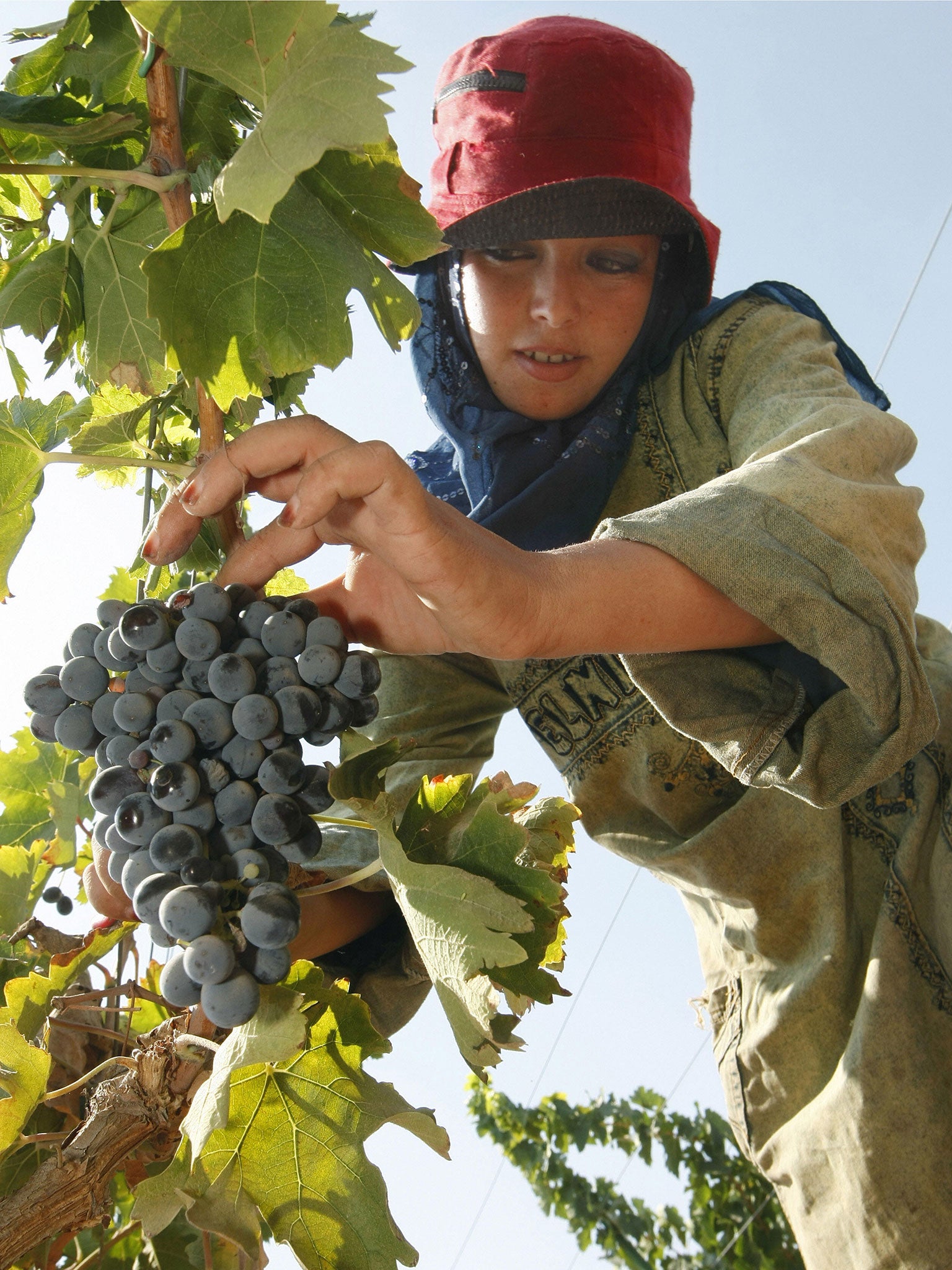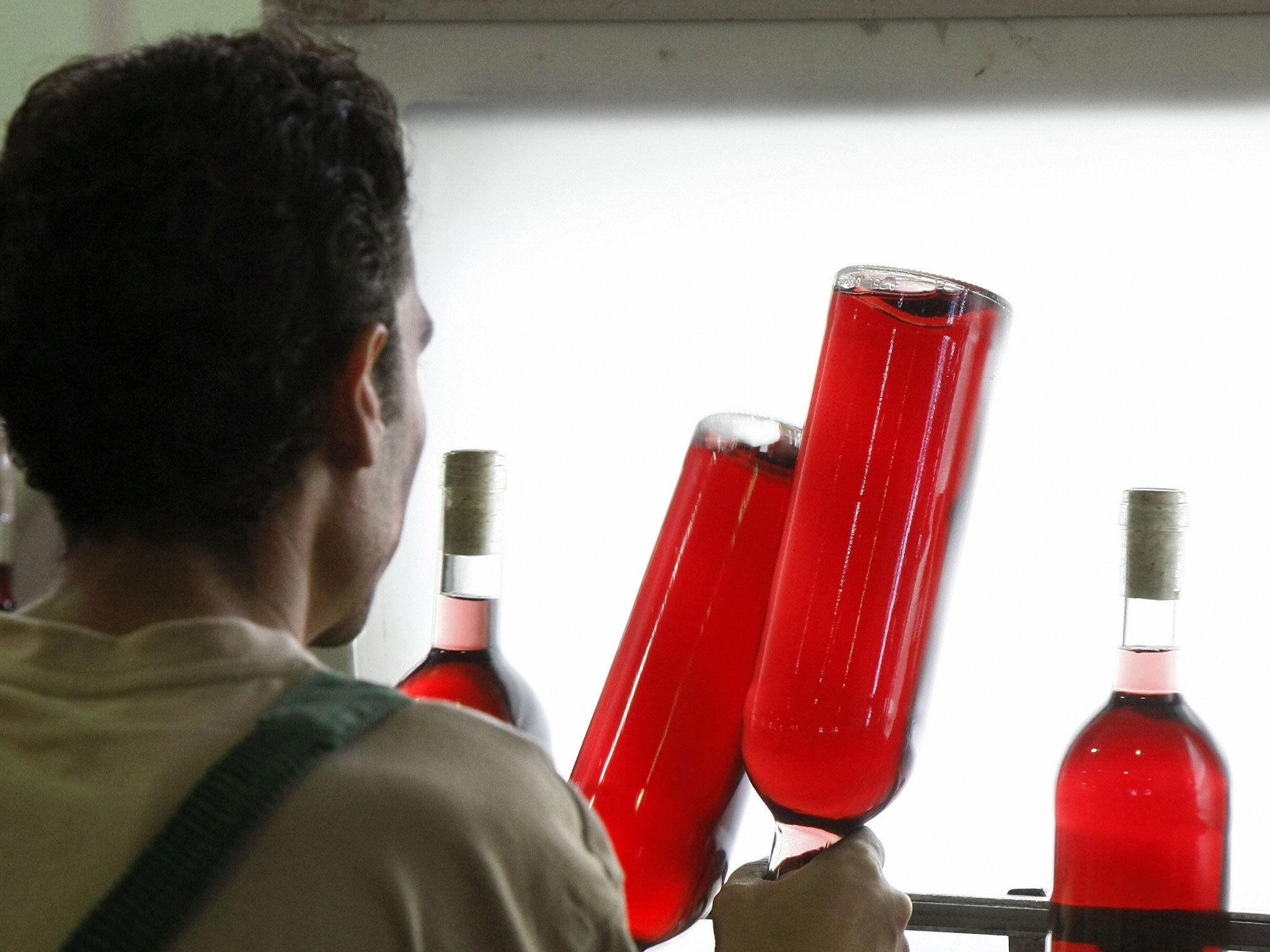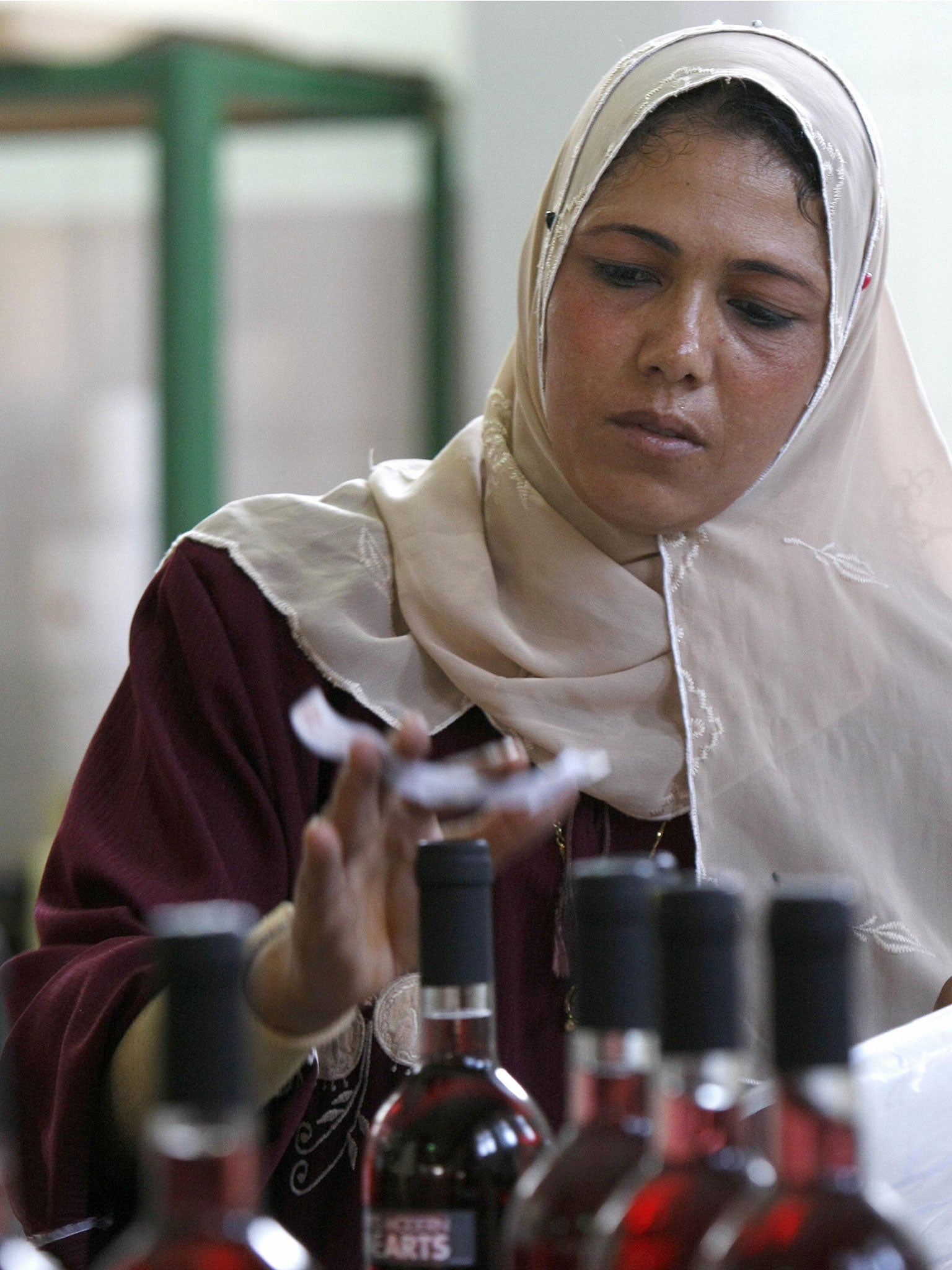Egypt's alcohol restrictions have left consumers at the mercy of a single company or the option of drinking some potentially dangerous alternatives
Booze in the Muslim country often ranges from the questionable to the downright undrinkable, but that doesn't stop some people from partaking...

Your support helps us to tell the story
From reproductive rights to climate change to Big Tech, The Independent is on the ground when the story is developing. Whether it's investigating the financials of Elon Musk's pro-Trump PAC or producing our latest documentary, 'The A Word', which shines a light on the American women fighting for reproductive rights, we know how important it is to parse out the facts from the messaging.
At such a critical moment in US history, we need reporters on the ground. Your donation allows us to keep sending journalists to speak to both sides of the story.
The Independent is trusted by Americans across the entire political spectrum. And unlike many other quality news outlets, we choose not to lock Americans out of our reporting and analysis with paywalls. We believe quality journalism should be available to everyone, paid for by those who can afford it.
Your support makes all the difference.He pours two glasses, sniff and sip, sniff and sip. “This one is my favourite,” says David Molyneux-Berry, after uncorking a bottle of red Chateau de Granville 2014.
The wine is made with grapes from Bordeaux. They are chilled and sent to Egypt for processing by the Al-Ahram Beverages Company. The flavour is certainly distinctive, complete with a lingering acidity that seems to stick to the back of the throat. “The problem is that wine doesn’t really like temperatures over 20C, and here we’re pushing 40,” explains Molyneux-Berry, a fine wine consultant. “This means all the acids come out.”
Molyneux-Berry is no amateur: the former head of Sotheby’s wine department, he has been working in the wine industry since 1964.
Egyptian wine is on the rise. Long dismissed as inferior to Europe’s offerings, it was once apparently good enough for the Roman General Mark Anthony, as he lay dying in Shakespeare’s Anthony and Cleopatra. “I am dying, Egypt, dying,” he said. “Give me some wine and let me speak a little.”
“Things are improving all the time,” says Molyneux-Berry, 68. “We haven’t found our limits – it will take another 10 years before we get everything right. We’re improving all the time, but it takes time – wine is not made overnight.”

The Egyptian market for alcohol is small. A 2013 survey found that 75 per cent of people find alcohol consumption “unacceptable”. That could be because booze in Egypt often ranges from the questionable to the downright undrinkable. That does, however, not stop some people from drinking it.
Government restrictions on alcohol imports, combined with import taxes that are passed on to the consumer, mean that only the very rich can afford imported booze. The result is that consumers are either at the mercy of a single company, Al-Ahram, or they turn to some potentially dangerous alternatives.
The Al-Ahram Beverages Company has a virtual monopoly on alcohol in Egypt. Aside from wine, it makes whiskey, gin, vodka, a beer called Sakara and a light lager called Stella that can be found on tables from street cafés to five-star hotels in Egypt. Not only does Al-Ahram own the distilleries, vineyards, factories and distributors, but it also owns the Drinkies alcohol shop where its products are sold, or delivered to customers houses.
Al-Ahram was bought by the Dutch alcohol brand Heineken in 1998 after being nationalised under the reforms of President Gamal Abdel Nasser, but its dominance of the small market comes from the near impossibility of finding imported alcohol in Egypt.
It’s not just visitors and some residents of Egypt who stock up on duty-free bottles of imported liquor – some bars do too. Establishments that are licensed to serve alcohol can only do so “for touristic purposes”, meaning they’re likely to be found in one of Cairo’s richer central districts or beach resorts such as Sharm el-Sheikh. Depending on the kind of licence they have, they can also choose to purchase imported alcohol from a special duty-free shop for businesses.

Rasha Azazy, spokesperson for the Ministry of Tourism who issues the licences, says that the total number of alcohol licences given out has never topped 1,000. “In the past four years we’ve issued around 110 new licences,” she said. “This is a small industry. We don’t have the pubs of London. But if you’re licensed, you are licensed to import alcohol, it’s just the expense that stops people [from buying imported products].”
“When you have a licence, there is a quota for the amount of each type of alcohol you can buy from the duty free depending on the capacity of your business,” explains Dawood (not his real name) a Cairo proprietor. “What happens when you go over the quota? There are illegal suppliers. They get their booze from embassies, or alcohol smugglers.”
Standing beside wooden cabinets lined with bottles of Al-Ahram’s ID vodka and Auld Stag whiskey in his liquor shop in Cairo’s wealthy Zamalek district, Samaan Estafanos says that he couldn’t stock imported booze even under the counter. “If the police find imported bottles in here, they’ll charge me 10,000 EGP (£821) in customs tax,” he says. A bottle of ID costs 115 EGP (£9.40) and Auld Stag costs 90 EGP (£7.40), although opening a bottle makes you feel like you’ll get drunk on the fumes alone.
For those looking for a budget tipple, there are options – but not ones likely to be kind to your health. Inside a small corner shop in downtown Cairo, dusty white-painted shelves display bottles of something labelled “Marcel’s” that is designed to look like J&B whiskey, for the cut-price sum of 28 Egyptian pounds, or £2.30. Next to it is Bell’s “old Egyptian whiskey”, at 35 EGP, or £2.88.
Some of the more budget options – not to mention the reported fondness for some drinkers to make moonshine at home – can have disastrous health effects according to Dr Nazih Ramadan, of Cairo University’s toxicology department. Dr Ramadan explains that some low-cost alcohol can contain methanol, commonly known as the highly toxic mentholated spirits, rather than ethanol. “One of the risks of methanol is that even one sip can cause loss of sight,” he says. Dr Ramadan added that, given that Egypt is a Muslim country, the government must warn Muslims about the dangers of drinking any alcohol.
Egypt isn’t necessarily a country of drinkers, but there are those who enjoy a glass of something at the end of a long day. But a person’s ability to avoid the threat of blindness – or at least a nasty headache – often hinges on whether they can afford to buy the imported version of their tipple of choice.
Join our commenting forum
Join thought-provoking conversations, follow other Independent readers and see their replies
Comments